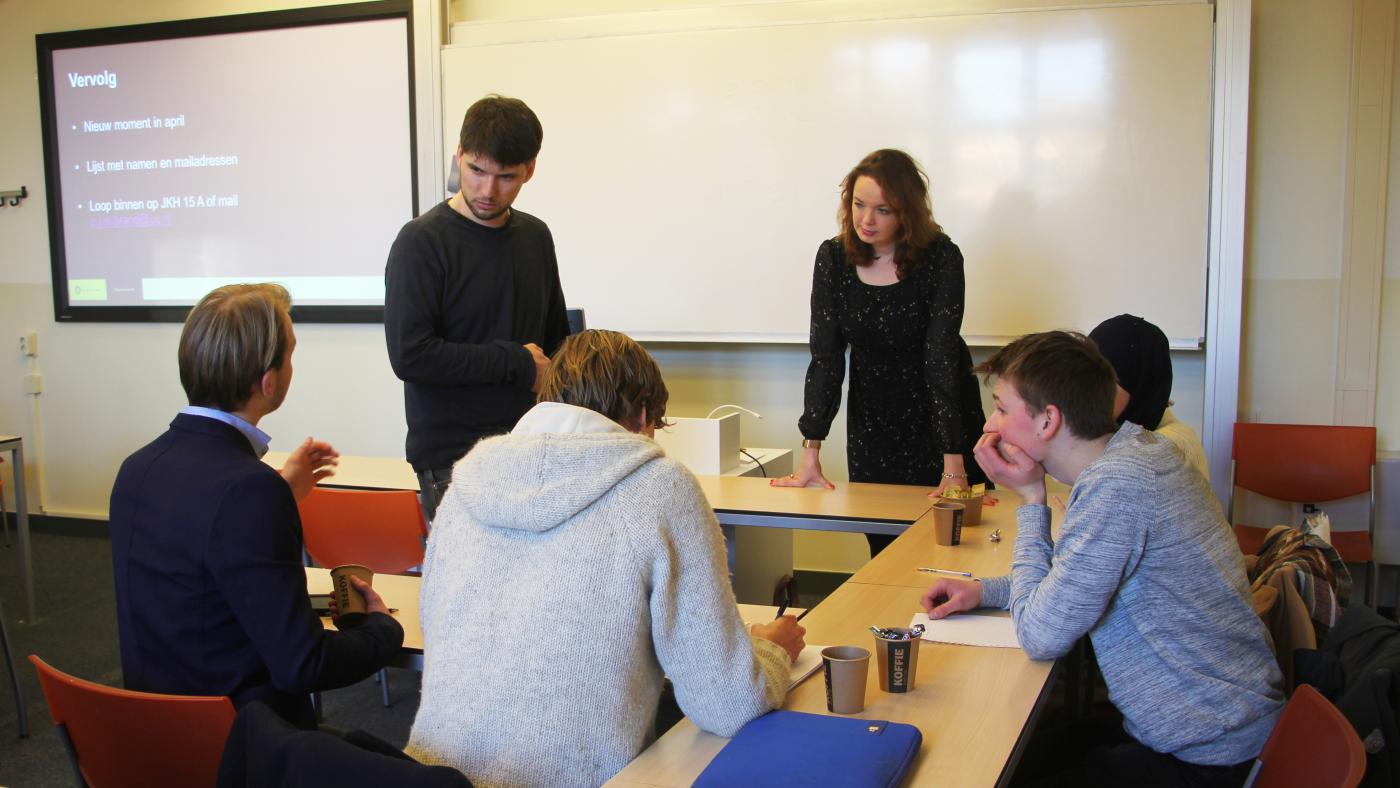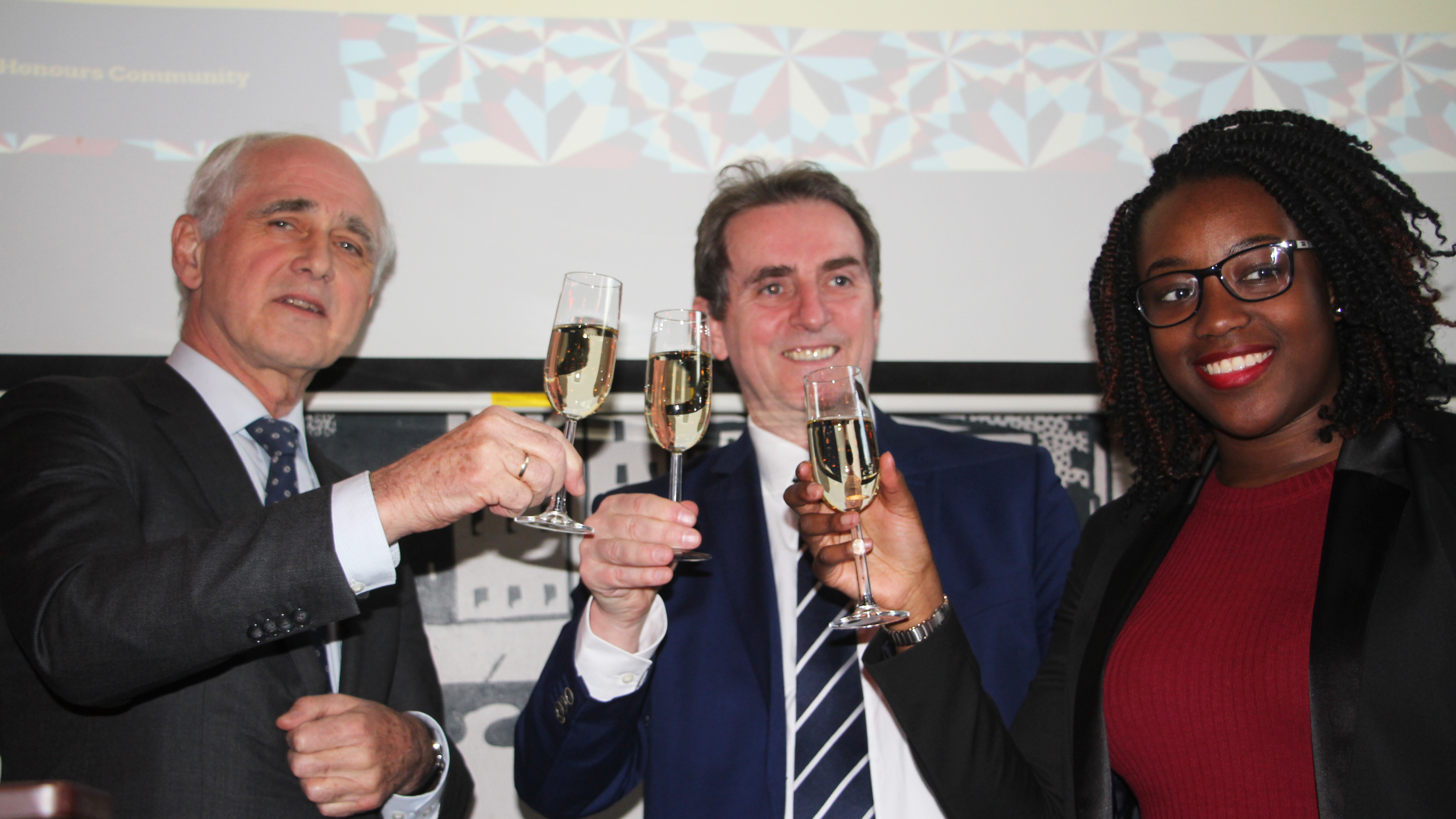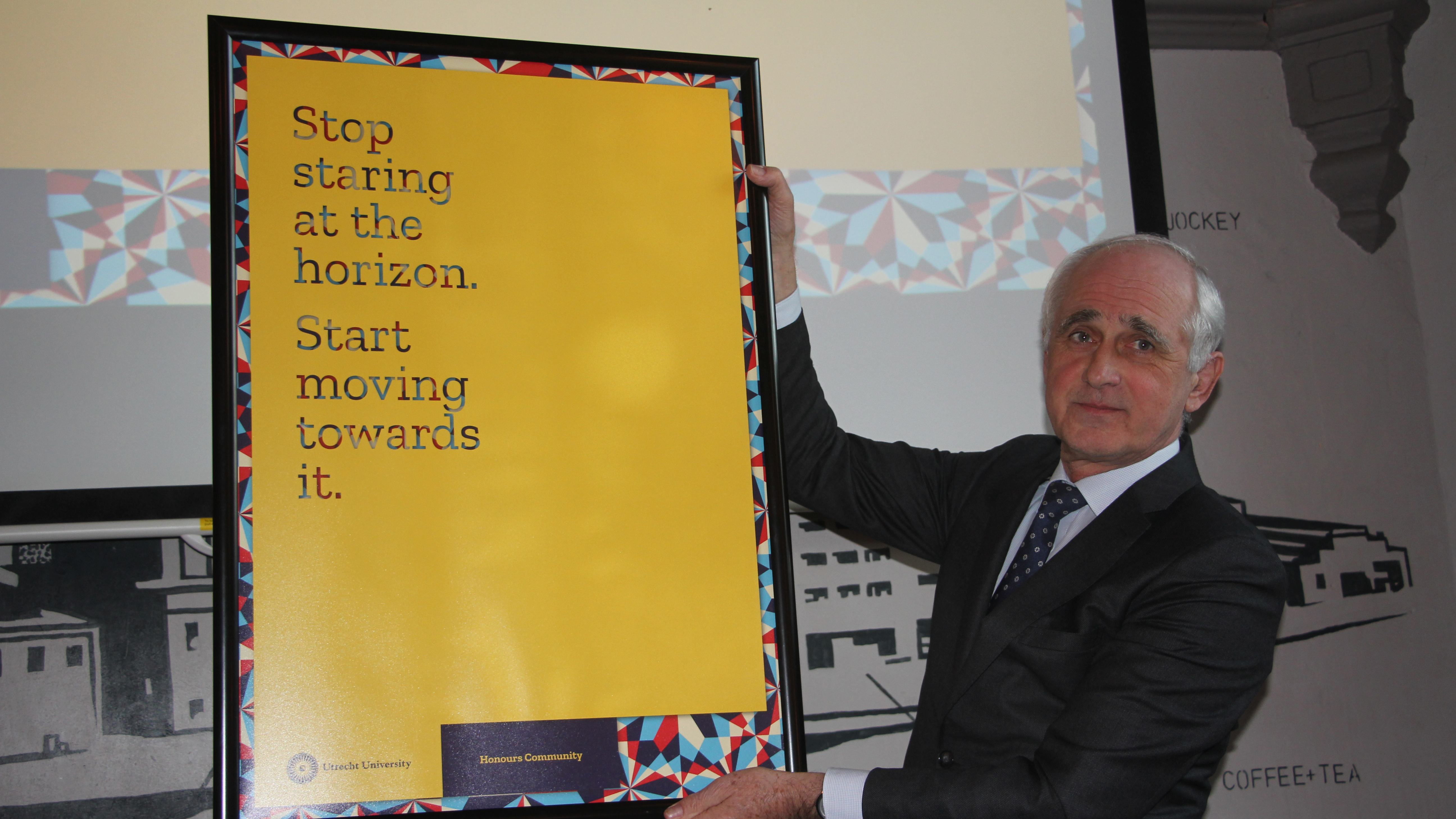Honours programmes to relax admission criteria

On Tuesday, February 6th, the UU Honours College opened its doors at Janskerkhof 15A. Officially, the college was launched in January 2017 with the goal of organizing interdisciplinary honours programmes for motivated UU students. Additionally, the college wants to support teachers and students participating in their faculty’s honours programmes. “The idea is that honours students and teachers can meet up in our new accommodation,” says Michael Burke, professor of Rhetoric, who’s been appointed as Honours Dean by the UU.
For motivated students
UU students can participate in honours programmes alongside their own study programmes. It’s meant to be an extra for motivated students. You receive credit for the honours programmes, but the activities don’t fit exactly into the bachelor’s or master’s curriculum.
Each faculty organizes its own honours programmes. Additionally, students can choose to apply to an interdisciplinary honours programmes, meant to join together students of different faculties. These programmes are organized by the UU Honours College. The most well-known programmes are the Descartes College, Young Innovators and the Graduate Honours Interdisciplinary Seminars (GHIS). There’s also an international honours internship programmes called STREAM.
 For many students, participating in an honours programmes is an excellent way to broaden their study programmes, and to get to know other motivated students. “I’m the kind of student who’s often asking questions in class. But I was mostly the only one in my study programmes. In the honours programmes, I met other students who were like-minded. That’s very inspiring,” says Chevaly Riebeek, one of the GHIS students. She was at the opening of the UU Honours College to talk about her experiences, and proposed a toast to the new accommodation with Michael Burke and rector Bert van der Zwaan (see photo).
For many students, participating in an honours programmes is an excellent way to broaden their study programmes, and to get to know other motivated students. “I’m the kind of student who’s often asking questions in class. But I was mostly the only one in my study programmes. In the honours programmes, I met other students who were like-minded. That’s very inspiring,” says Chevaly Riebeek, one of the GHIS students. She was at the opening of the UU Honours College to talk about her experiences, and proposed a toast to the new accommodation with Michael Burke and rector Bert van der Zwaan (see photo).
Set-up is different in each faculty
In his speech, Bert van der Zwaan referred to the origins of the honours programmes. The university wanted to offer something more to its motivated students. Each faculty was tasked with setting up an honours programmes. In the beginning, the university received a ‘start up’ grant through the Sirius programmes. That no longer exists.
Because the responsibility lay with the faculties, the result is that the set-up is very different in each faculty. At the Science faculty, the honours programmes are mostly aimed at their own disciplines, with every now and then some shared activities with honours students from other study programmes. At Social Sciences and Humanities, however, there’s one honours programmes for the entire faculty. The faculty of Law houses its honours students in their Law College.
The programmes still offer students added material insights, but they’re also a place to get to know other students. They add to the community of honours students, through drinks, organizing debates, or a shared study trip.
In the Social and Behavioral Sciences honours programmes, adding to the community is an explicitly stated task for the students. Several committees have been set up to reach that goal. “We’ve also contacted honours students at other faculties, to see if there’s anything we can do together. Organizing an event, for instance,” says honor student Patrick.
The UU Honours College is responsible for the interdisciplinary honours programmes. It also wants to help build a community of honours students, including those doing an honours programmes at a faculty. “The idea is that we as an Honours College help students do this. We can offer advice, or a place where students can meet,” says Charlotte Brand, coordinator at the UU Honours College.
Difference between faculty honours programmes and interdisciplinary honours programmes
The big difference between faculties’ programmes and interdisciplinary programmes is that the interdisciplinary honours programmes join together students from several faculties. You can apply to these programmes through the UU Honours College.
The longest-running programmes is the Descartes College. There, bachelor’s students take a course of around thirty meetings about general science-related themes, with students from many different study programmes. Around 100 students follow this programmes each year.
Last year, the Honours College started a different project, aimed at master’s students. In the Graduate Honours Interdisciplinary Seminars, master’s students follow several seminars held by UU distinguished professors from disciplines other than your own. “It’s very interesting to look at a scientific topic, for instance immunology, from several different perspectives,” a participant says.
 Not just grades-based selection
Not just grades-based selection
The UU offers the honours programmes as an extra for ‘the motivated student’. In the beginning, that meant mostly looking at grades. Until recently, if you wanted to apply to Descartes, you needed a 7.5 grade average to be eligible. Honours Dean Michael Burke wants to change that. “I’m a supporter of looking beyond grades in admission. Maybe a 7 could be a baseline, not a requirement. To me, it’s important to look at the students’ motivation and contribution.”
As an example, he mentions the GHIS programmes, where this principle was applied in last year’s admissions. “We had 130 applications for a little over 40 spots. We invited all students, and talked to them about their motivation. That quickly shows you that even students who don’t meet the grade requirement, can still be incredibly motivated, and could make a very valuable contribution to the debate. We do always say: make sure that doing this honours programmes will not interfere with your regular study programmes. If it does, you need to quit the honours programmes.”
By making the grade requirement less strict, more students can apply. “That means there’s more to choose from during the selection process,” Burke says. He says it’s important not to look exclusively at the intellectual input. “The GHIS has students from countries such as Germany, Indonesia, Saudi Arabia, China, but also Dutch students with an immigrant background. That keeps the group very diverse, which is valuable, because students bring varied perspectives to the debate.”
(Translation: Indra Spronk)